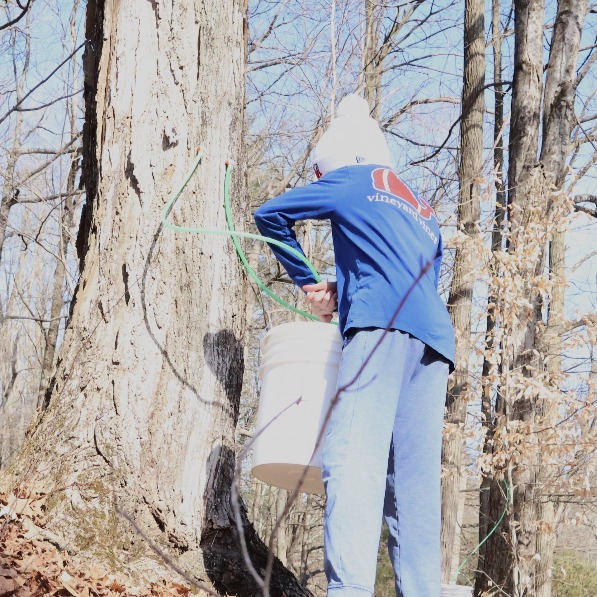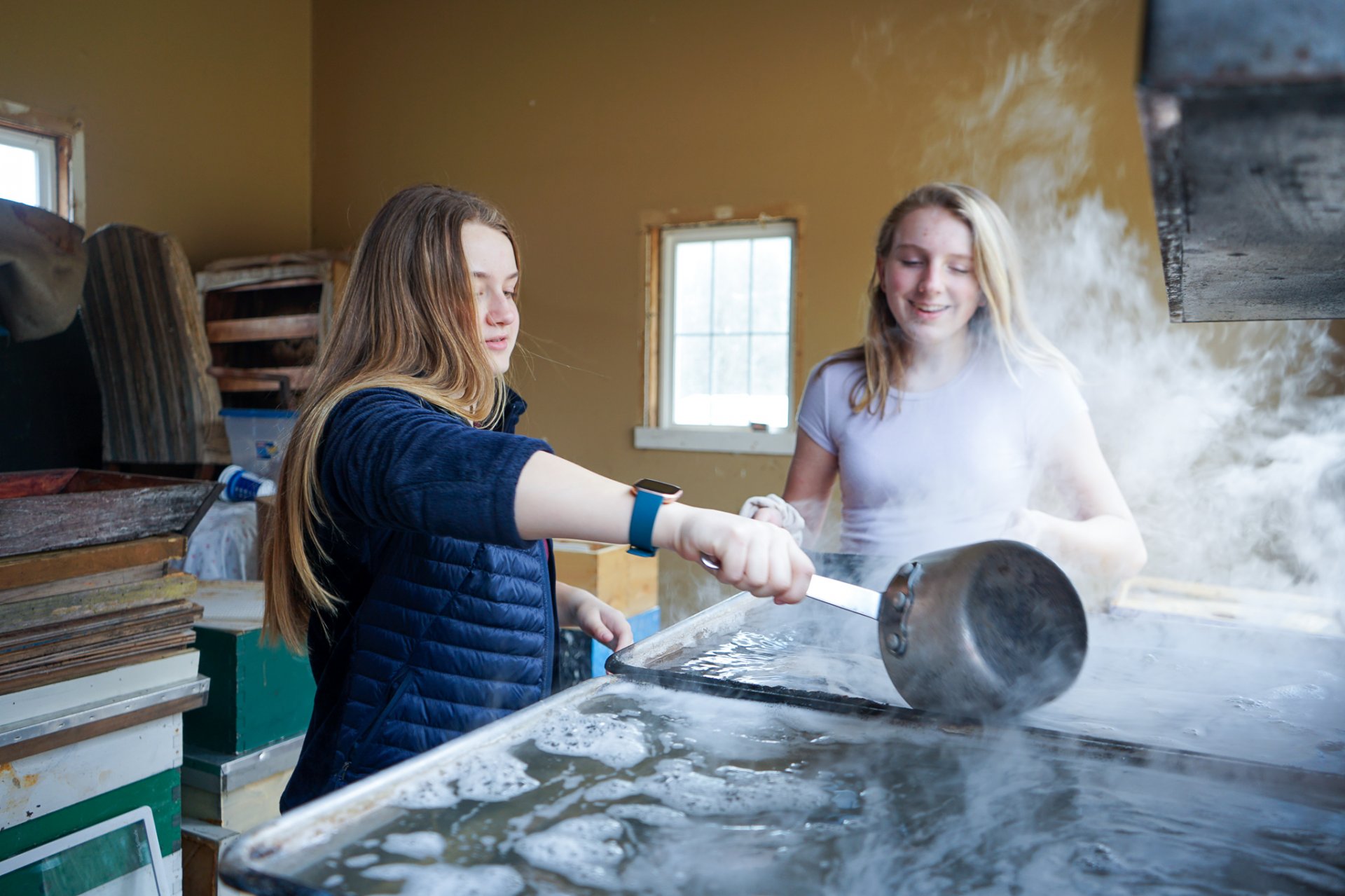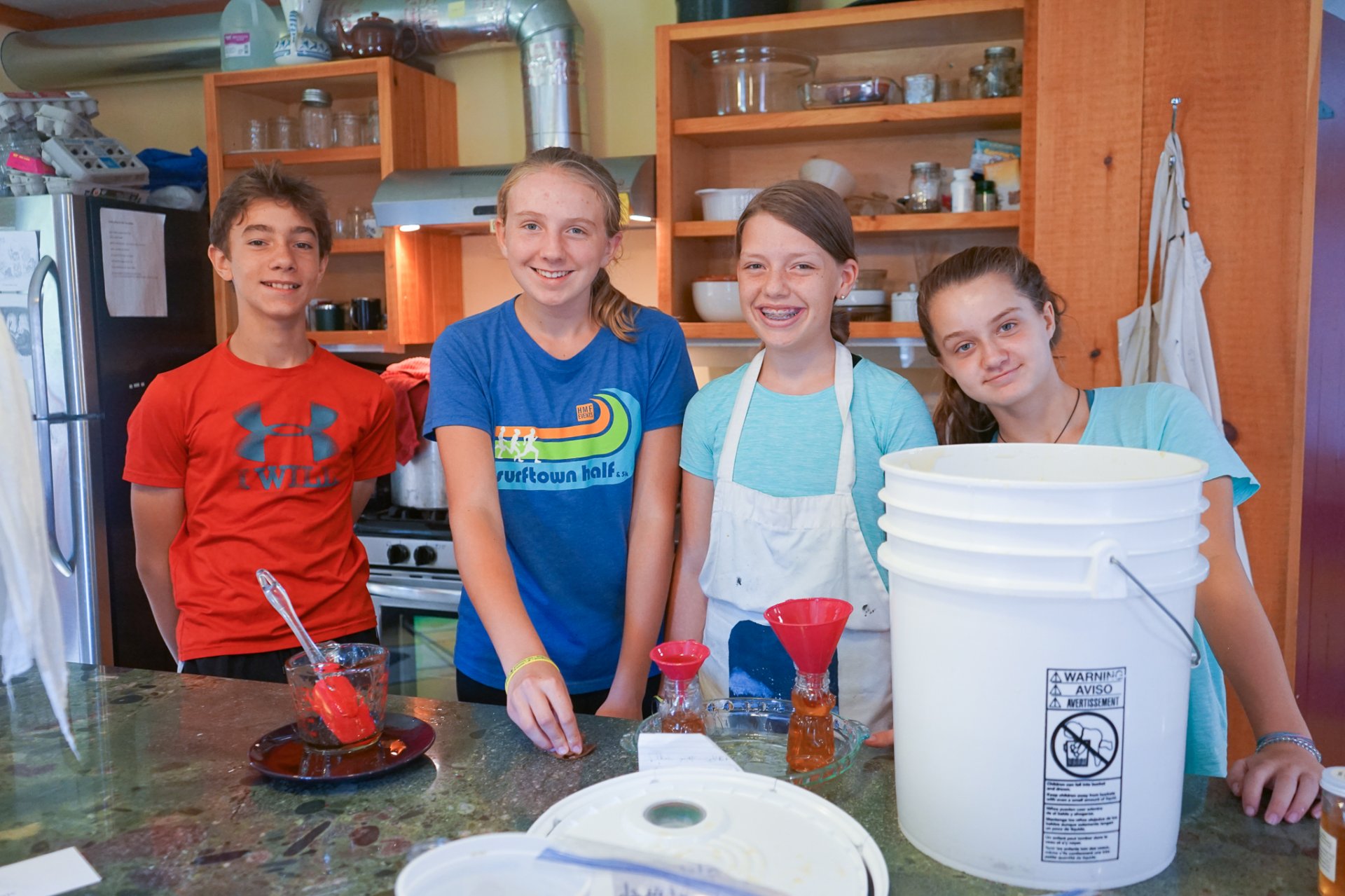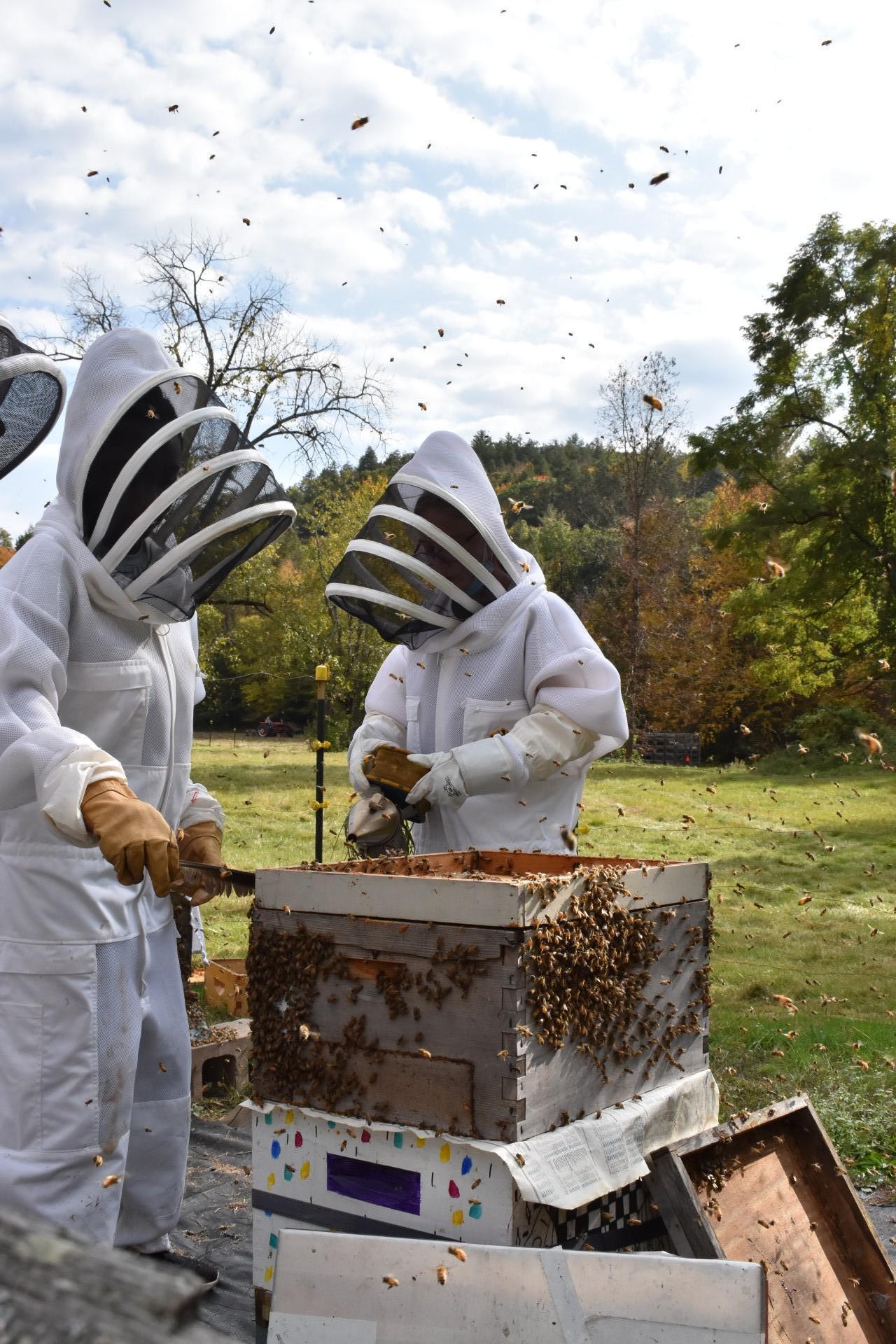Adolescent Collection of Maple Sap
"A boiling labor of love."

Over here at Millstream Farm, we've been starting our mornings by collecting maple sap, filling our boiling pans, and lighting our syrup stove. Did you know it takes forty gallons of sap to produce one gallon of maple syrup? That's a lot of trips up and down the maple trail carrying big buckets when it's cold in the mornings. Funny enough though, not every morning has been cold, and while that's nice for us, it's not great for syrup. Our adolescents can tell you that maple trees produce sap when it is below freeing at night, and above freezing during the day. We have been collecting data on how well each maple tree produces sap depending on the temperature. There are other factors to consider too- the circumference of the tree trunk, sun exposure, etc. It's a slow start to the syrup season, but we've already bottled half our usual inventory.
Our hands-on work and data collection have accompanied our scientific studies in the classroom where we've discovered connections between our maple trees and biology, chemistry, and physics. After reviewing our propane bills in Micro-Economy, we're also thinking about continuing our scientific studies with a focus on energy. Last year we used our student business funds to purchase a reverse osmosis machine to take some of the water out of our sap and reduce our boiling time and propane consumption. 8th year, Eli Hayward has been great at setting up the RO machine this year and maintaining it throughout the season.
After hours of boiling outside with an adolescent checking on the sap every half hour to fill up the pans, we finally bring the sap inside the classroom. There we filter it and start a final boil under close watch. As the sugar content rises, we have to check the density with a hydrometer. The syrup has to have just the right amount of sugar- too much and it will crystalize, too little and it will not be shelf-stable. If we get distracted, the syrup can boil over and we have a huge sticky mess to clear up. Most of the time though, everything goes according to plan, and we have an umber pot full of beautiful maple syrup ready to bottle. Our maple syrup is up on our student website msghmillstreamfarm.org for you to purchase and enjoy at home or to give to friends. Whoever ends up with a bottle is sure to enjoy it as a labor of love.
This article was written by Alex Pape, Adolescent Guide


Parent Observations, Student Visits
Parents of prospective students are encouraged to experience an Adolescent Program for themselves by planning a visit. Visiting parents receive a full tour of the Millstream Farm and are welcome to observe the classroom. Prospective students join the classroom for a minimum of one full day as part of the admissions process. Open House are held in the fall and spring. Check the MSGH calendar for specific dates.
Program Details
Teachers: Our Adolescent Program teachers have Masters-level educations and most have completed the NAMTA/AMI Orientation to Adolescent Studies recognized by the North American Teachers Association (NAMTA) and Association Montessori Internationale (AMI).
Afterschool Program: The school day begins at 8:20 and ends at 3:00. An afterschool program is available at the West Hartford campus until 5:30, during which students may complete homework, read, engage in developmentally-appropriate games and crafts, and enjoy time outdoors.
Transportation is provided daily from MSGH’s West Hartford Campus. The bus departs at 7:40 and makes an additional scheduled stop on Route 44 to pick up students.
Transition: One of the most frequently asked questions of any Montessori school is: How will children adapt when they transition to a new school? What we have seen is that students successfully transition to the next level and consciously build on their Montessori experience, finding it has given them a solid academic base, along with a diverse set of skills, such as: time management skills, collaborative work skills, leadership skills and problem solving skills. Other observations are that Montessori students have faith in adults, display an understanding of community, and a willingness to do community service. For more information, check out life after MSGH. If you have more questions about this or other aspects of MSGH, please feel free to contact us.










